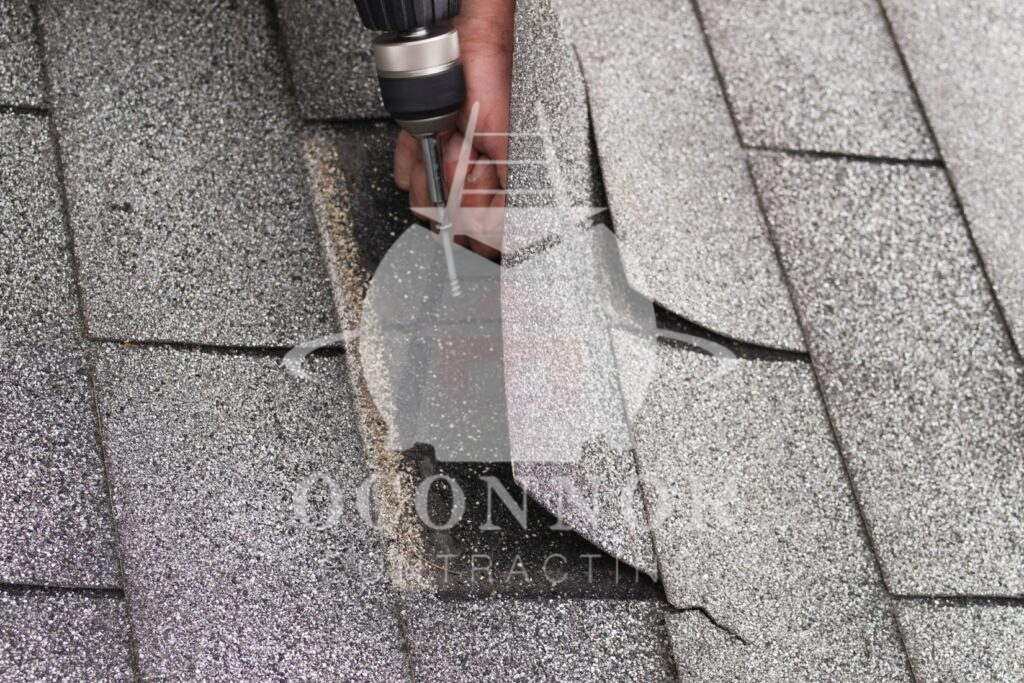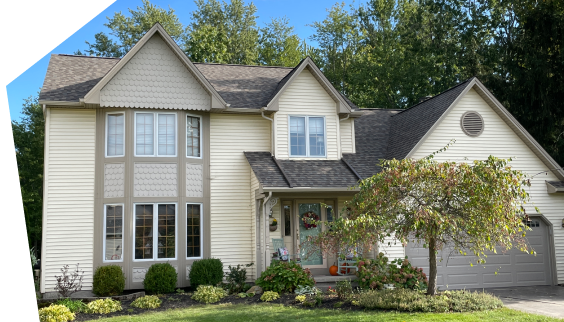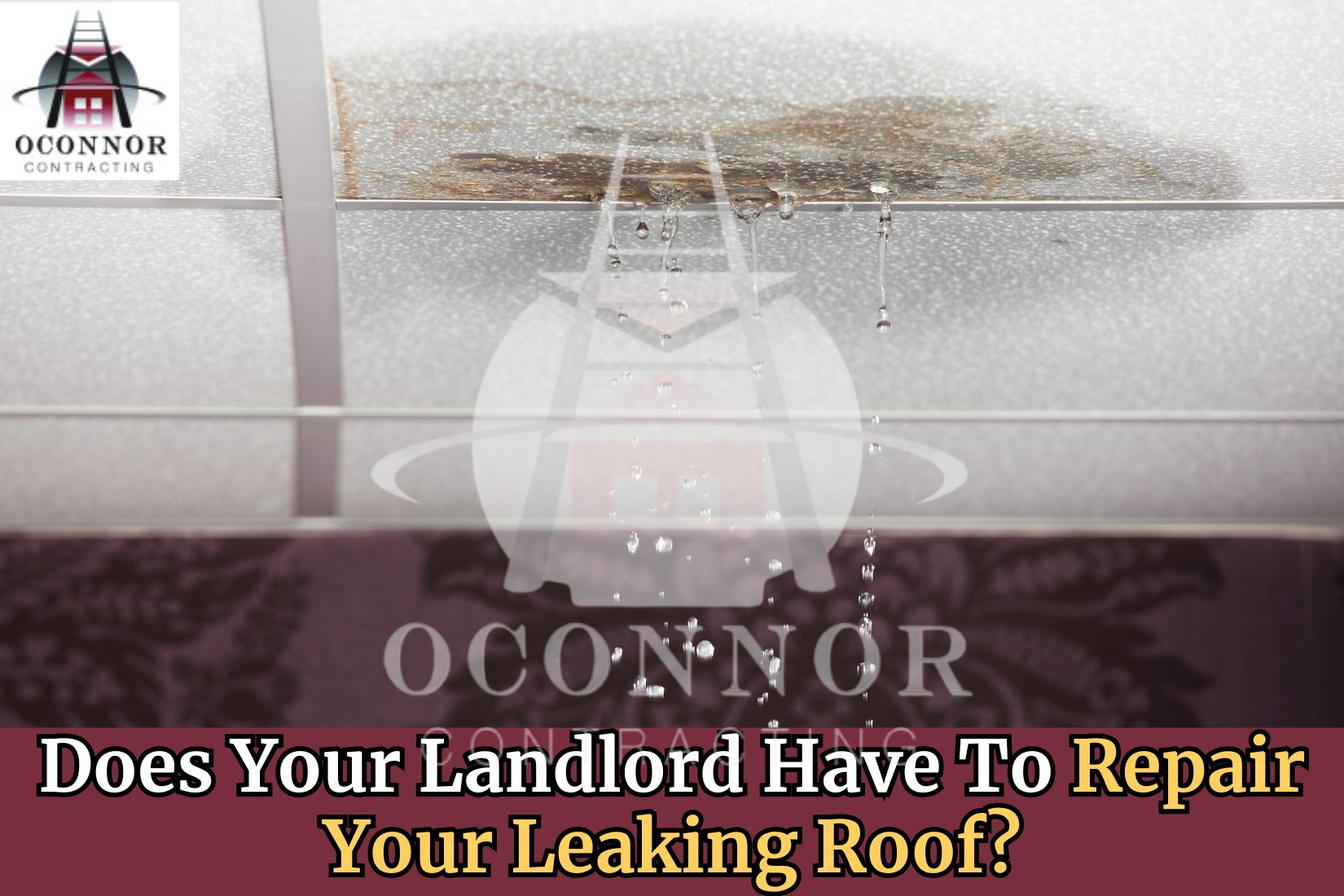Imagine a big storm hits the home that you’re renting, and you notice water dripping from your ceiling onto the floor. As the rain continues and the leak gets worse, you might start to wonder who’s responsible for fixing the problem.
In this post, we’ll cover tenants’ rights, landlords’ duties, and what to do if you’re facing a leaking roof.
Who Is Responsible For Roof Repairs?
Due to their legal duty to provide a secure and livable environment for renters, landlords are typically held accountable for maintaining the structural integrity of the property, particularly the roof.
The landlord is normally obligated to make quick repairs to a leaky roof that results from weather-related damage or natural wear and tear. Since a leaky roof can result in problems like mold growth, structural damage, and health hazards, it is legally required of landlords to make sure their properties satisfy basic health and safety standards.
Legal Obligations Of A Landlord
In New York state, landlords are required by law to keep their rental properties safe and livable, based on the implied warranty of habitability. This means the property, including the roof, must be in good condition. Although specific laws differ by location, here are some key points:
1. Structural integrity
Landlords must maintain the building’s structural elements, including the roof.
2. Weather protection
The roof should protect tenants from weather like rain, snow, and wind.
3. Health and safety
A leaking roof can cause mold, electrical problems, and other health risks, which landlords must prevent.
4. Building codes
Landlords must ensure their properties meet local building codes, including those related to the roof.

Exceptions Where Tenants Might Be Responsible:
While landlords usually handle roof repairs, there are situations where tenants could be liable:
1. Negligence or Intentional Damage
If a tenant causes roof damage through their actions, like installing a satellite dish incorrectly or failing to clear gutter debris, they might have to pay for the repairs.
2. Lease Agreement Clauses
Some leases may include clauses that make the tenant responsible for roof maintenance. It’s important to read and understand your lease agreement, especially any parts about repairs and maintenance, before signing.
Steps to Take if You Have a Leaking Roof
The following is a brief overview of the actions you should take when you notice a leak.
#1. Document the Damage
> Take Photos and Videos
Capture clear images and videos of the leak and any damage it has caused. Include close-ups of the leak and wider shots of the affected areas.
> Make Notes
Record the date and time you discovered the leak and any details about its severity. This information will be useful later.
#2. Notify Your Landlord in Writing
> Initial Communication
After calling your landlord, follow up with written notification, such as an email, text, or formal letter.
> Include Key Details
Describe the problem, when you discovered it, and any concerns you have about damage. This written record helps in case of disputes.
#3. Understand The Emergency Repair Process
> Assess the Severity
If the leak is severe, you may need to act quickly.
> Arrange for Emergency Repairs
If you can’t reach your landlord or they don’t respond, arrange emergency repairs yourself.
> Keep Receipts and Records
Save all receipts and documents related to the emergency repairs. This can help if you need to request reimbursement or deduct costs from your rent.
#4. Follow Up
> Check for Responses
If your landlord doesn’t respond quickly, send additional written communication.
> Be Polite but Firm
Politely remind your landlord of the urgency and request prompt repairs. Keep a positive tone but be clear about your needs.
> Keep a Record of All Communications
Document all correspondence with your landlord about the leak, including dates and details.
Legal Recourse for Tenants
If your landlord ignores your repair request, you have a few options for legal recourse:
1. Withholding Rent
In some areas, you might be able to withhold rent until the repairs are done. However, this can be risky, so it’s crucial to understand local laws and seek legal advice first.
2. Repair and Deduct
In some areas, you can pay for the repairs yourself and then deduct the cost from your rent. This usually applies to essential repairs and must be done according to local regulations.
3. Lease Termination
If the roof leak is severe and the landlord does nothing, you might be able to terminate your lease without penalty. This is a last resort and involves moving out and possibly taking legal action.
4. Seek Legal Advice
If you’re unsure of your rights or how to proceed, contact a local attorney or housing authority. They can offer guidance and help you understand your options.
Timeframes for Repairs: Understanding Urgency
Quick action is key to solving issues successfully and preventing further damage. Here is what you should consider in regards to repairing leaks.
1. Emergency Situations
Severe roof leaks that pose immediate danger, like those near electrical systems or threatening ceiling collapse, should be addressed within 24 to 48 hours. Quick action is essential to prevent further damage and ensure safety.
2. Non-Emergency Situations
Minor leaks, while not urgent, still need to be repaired quickly in order to keep them from becoming worse. Typically, repairs for these leaks should be done within 3 to 30 days, depending on local regulations. Reporting the issue promptly helps prevent bigger problems.
Factors Affecting Timeframes
Several factors can affect how quickly repairs are made:
- Weather Conditions: Bad weather can delay repairs, especially if heavy rain or snow makes it unsafe for contractors to work.
- Availability of Materials and Contractors: Shortages of roofing materials or high demand for contractors can extend the amount of time it takes to get a repair.
- Extent of Repairs: Simple fixes are quicker, but major repairs or replacements may take more time to complete.
Consequences of Neglecting Roof Leaks
While it seems more cost-effective to put off repairs until necessary, doing so can cause even more problems.
1. Health Risks
A leaking roof can lead to mold growth, which can worsen respiratory issues and other health problems, especially for children, the elderly, and those with existing health conditions.
2. Financial Implications
Neglecting roof repairs can result in expensive damage, possibly not covered by insurance. Tenants might also suffer financial loss if their belongings are damaged. Renters insurance can help, but understanding your coverage is crucial.
Conclusion
Dealing with a leaking roof can be stressful, but knowing your rights and the steps to take can help. Check your lease and local housing laws to understand your rights and how you’re protected in moments like this. Remember, you have the right to a safe home, and taking action can help ensure your landlord meets their responsibilities.
For reliable and prompt roof repair services, choose OConnor Contracting. Our team is dedicated to addressing leaks and other roofing issues quickly to protect your home. With a commitment to quality and customer satisfaction, we ensure your roof is in top condition. Contact us today at (716) 600-7663 for expert repairs.


